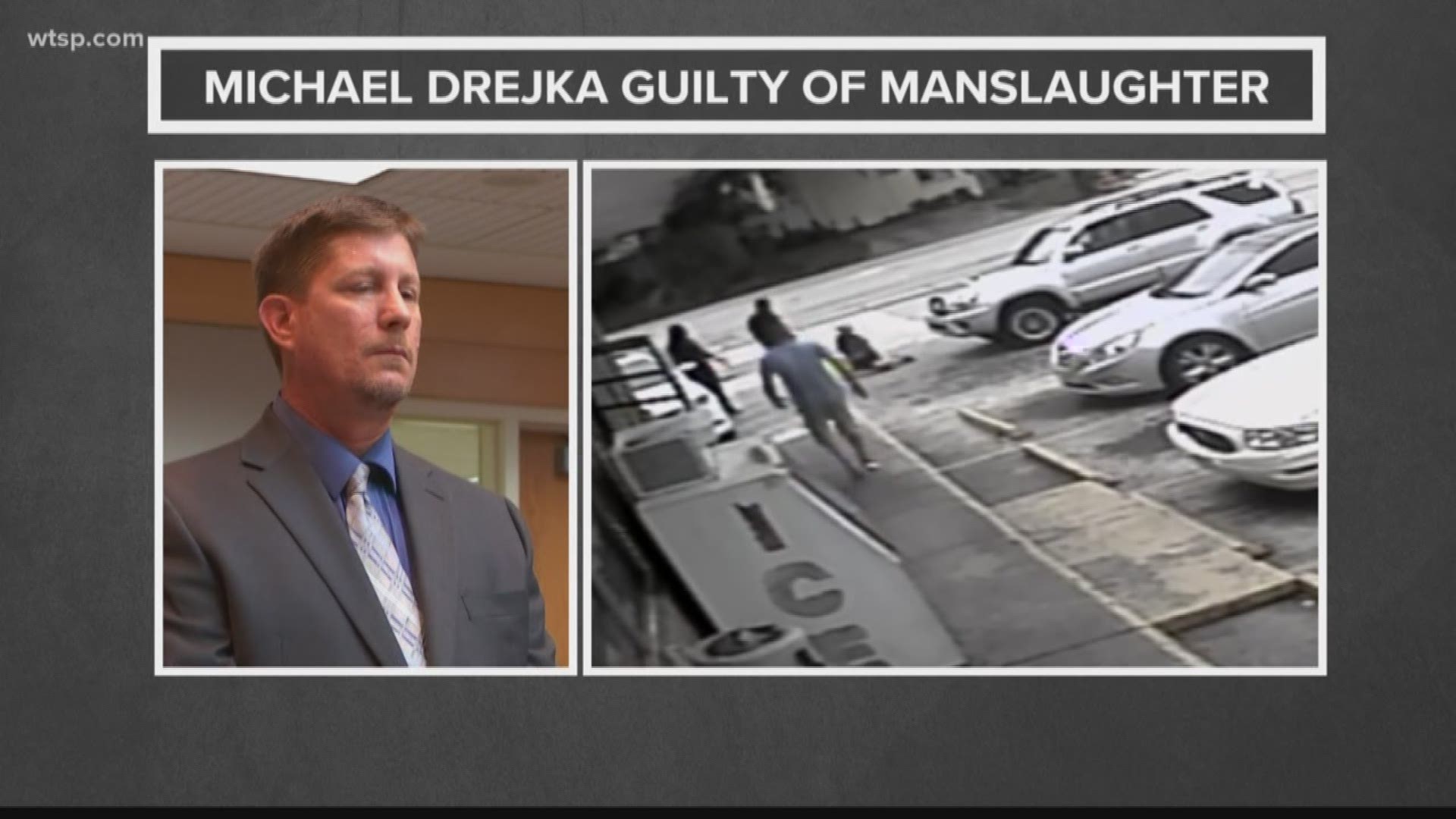CLEARWATER, Fla. — A jury found Michael Drejka guilty of manslaughter in the shooting death of Markeis McGlockton.
McGlockton was shot and killed by the 49-year-old Drejka during a July 2018 dispute over a disabled person’s parking spot at a Clearwater convenience store. Drejka admitted to shooting McGlockton last year, but his defense team was arguing self-defense at trial.
Sentencing is set for Oct. 10. Drejka could get 30 years in prison.
The verdict came about a half-hour after jurors sent out a note saying they were confused by the state's self-defense law. Circuit Judge Joseph Bulone told them all he could do is reread it for them.
The lengthy statute generally says a shooting is justified if a reasonable person under those circumstances would believe they are in danger of death or great bodily harm. But it also says the shooter could not have instigated the altercation.

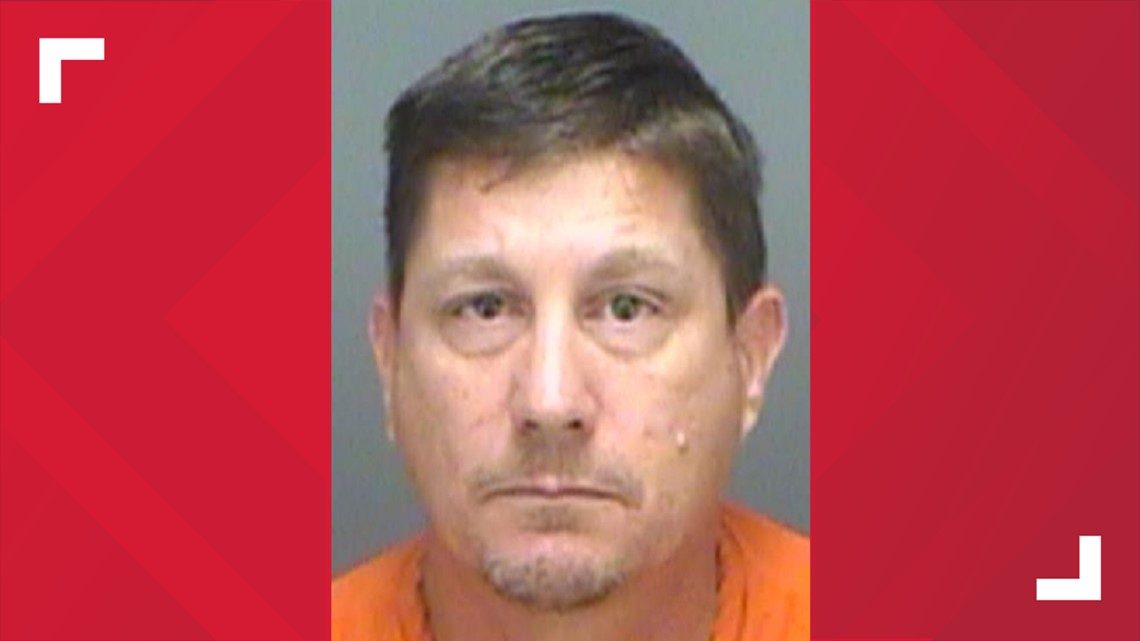
Members of McGlockton's family wept as the verdict was read and hugged and shook hands with the prosecutors after court was adjourned.
"This conviction doesn't bring our son back, but it does give us some sense of justice because far too often the criminal justice system fails us by allowing people who take the lives of unarmed Black people to walk free as though their lives meant nothing," McGlockton's mother, Monica Robinson, said in a statement.
"We are hopeful that this conviction will be a brick in the road to changing the culture of racism here in Florida."

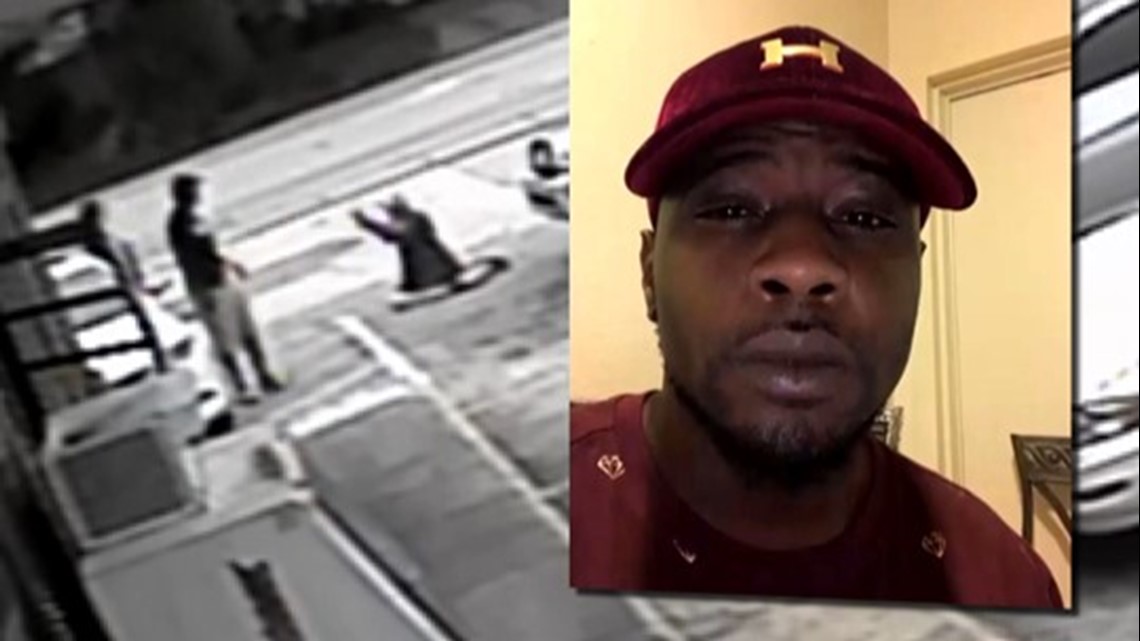
Theresa Jean-Pierre Coy, one of Drejka's attorneys, told reporters outside the courthouse that she respected the verdict, but her team would likely file an appeal. She expressed her condolences to the McGlockton family and said that while she was disappointed in the verdict, she was "happy they received the justice they were seeking."
On Thursday, jurors watched a slow-motion version of the confrontation outside the convenience store -- something defense attorneys had opposed, saying Drejka had to react in real-time.
That’s what Drejka told detectives during an hourlong video interrogation played for the jury, during which Drejka said he fired in self-defense.
“I never have been in that situation ever,” Drejka explained to the detectives. “I felt kicks were coming. I’m thinking he’s coming to do the rest of it.”
The detective asked Drejka, what he meant by “the rest of it.”
"Whatever beatings were coming after that,” said Drejka.
“Did you see him with a firearm?” the detective asked.
“No, sir, I didn’t see him with anything,” Drejka answered.
During the interrogation, Drejka, who said he had no formal law enforcement training, referred to self-defense terminology cops usually learn during training. That's important as prosecutors try to convince jurors Drejka was a “wannabe” police officer who had taken it upon himself to enforce parking rules, even at the risk of confrontation.

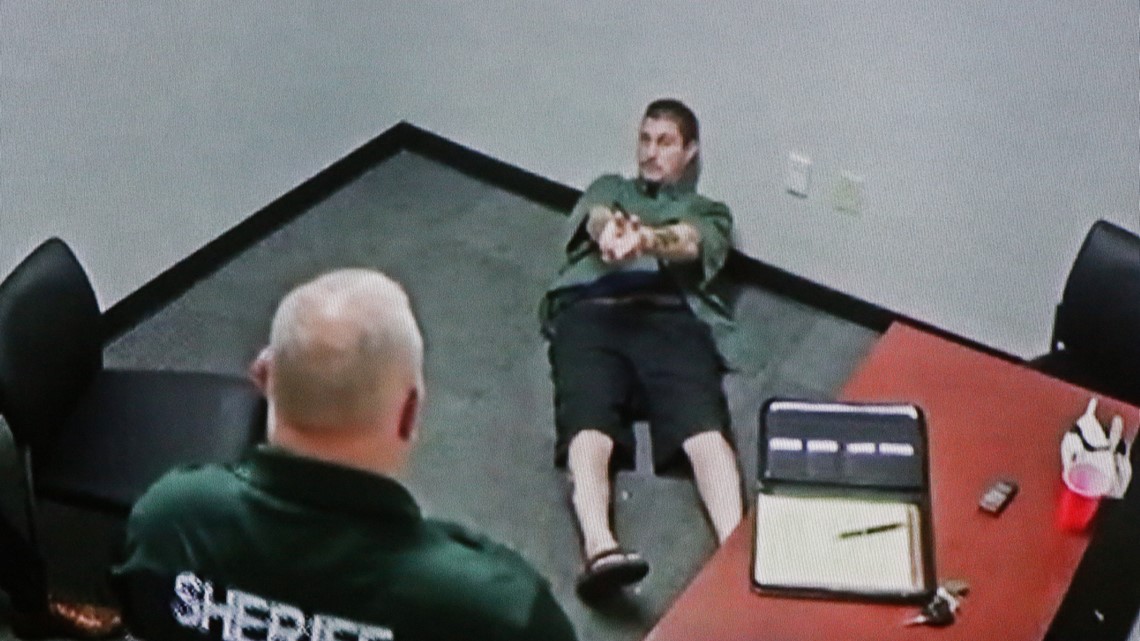
“Wouldn’t it be best, instead of putting yourself in that type of circumstance, to notify law enforcement?” one of the investigators asked in the interview
“You’ll never make it unless you’re parked there,” Drejka said. “By the time I call, they would be gone.”
When use-of-force expert Roy Bedard was called to testify, he was curious about Drejka’s training and why he used the term "21-foot rule."
“That’s something that has been talked about and studied in law-enforcement circles for 30 years. It’s unusual for average people to know about that,” he said.
The 21-foot rule refers to the distance that an attacker can cover in the time it takes them to draw and fire a weapon in self-defense. It's something taught during police training.
Bedard was also wondered why Drejka would use the term "force multiplier rule," which is generally used by military members in combat.
During opening statements, State Attorney Fred Schaub explained to the jury that they would hear Drejka explain the force multiplier rule: “If they have an army of 100, you better have an army of 200.”
Bedard testified that neither the 21-foot rule nor the force multiplier rule applies to the Michael Drejka case.
The jury also heard testimony from the medical examiner who performed the autopsy on Markeis McGlockton.
Dr. Noel Palma said the bullet that killed McGlockton had entered from his left side traveling upward into his body, not straight on. Prosecutors say that further suggests McGlockton was turning away from Drejka when that fatal shot was fired.
Schaub quietly took a moment to let McGlockton's family and friends know they were about to share photos of McGlockton’s corpse with the jury.
The entire group quietly left the courtroom. After about 20 minutes, McGlockton’s friends and family returned.
By the time the family returned to the courtroom, Dr. Bruce Goldberger, a forensic toxicologist, was on the stand explaining the level of stimulants listed in McGlockton’s autopsy report.
The autopsy report included a toxicology exam, which is a standard procedure for homicide cases. The toxicology exam revealed McGlockton had traces of MDMA, or Ecstasy, in his blood and urine.
Goldberger explained that MDMA would not have led McGlockton to act violently.
With that, the state rested its case against Drejka.

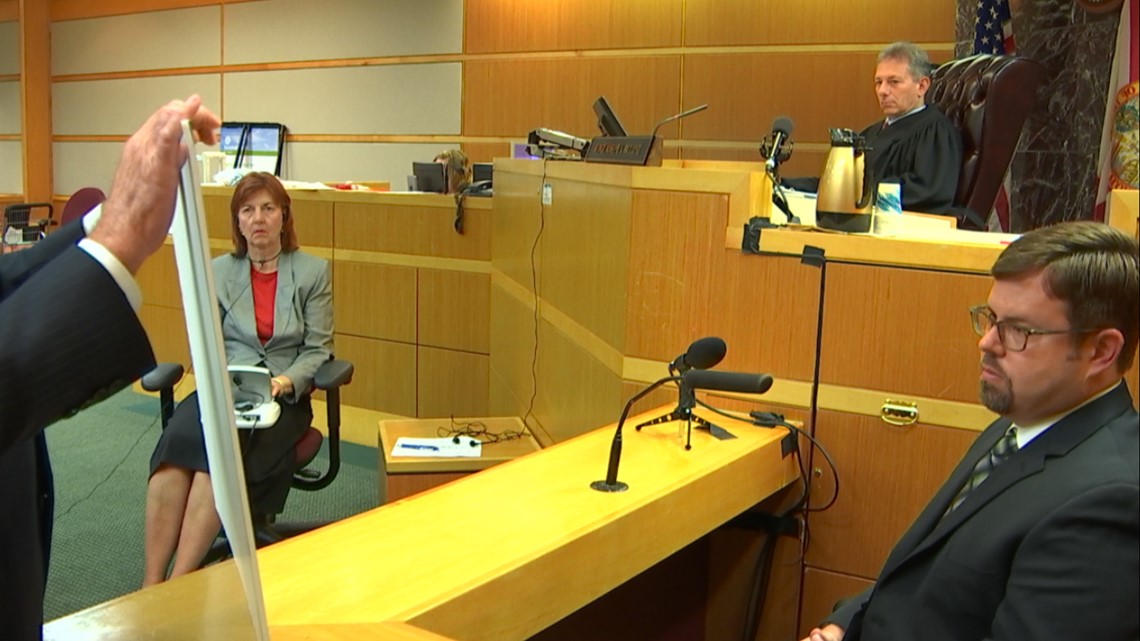
Drejka’s defense team first called pharmacology expert, Dr. Daniel Buffington, to the stand. He explained how MDMA works in the human body.
“This is a dangerous drug that has unpredictable side effects,” he said.
Some of the side effects Buffington listed for the jury included; impulsivity, agitation, aggression, emotional instability, paranoia confusion and altered perceptions.
Buffington said after evaluating the video, he concluded that McGlockton displayed physical aggression, which is one of the side effects of MDMA.
The Associated Press contributed to this report.
What other people are reading right now:
- 27 injured in light rail collision in Sacramento
- Port Richey man accused of forcing boy to sit on toilet for hours
- Woman brings meth to her court appearance for drug charges, deputies say
- Video shows woman shoving ailing dog into car trunk
- Florida serial killer who targeted gay men set to die tonight, here's the last meal he ordered
►Make it easy to keep up-to-date with more stories like this. Download the 10News app now.
Have a news tip? Email desk@wtsp.com, or visit our Facebook page or Twitter feed.

